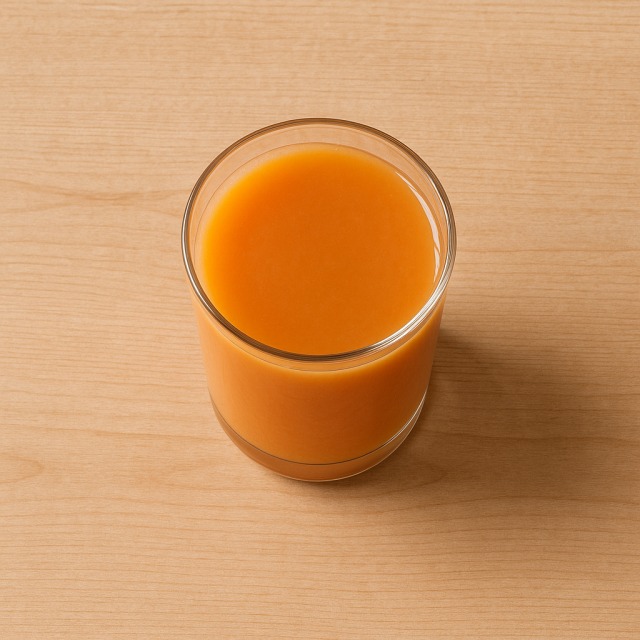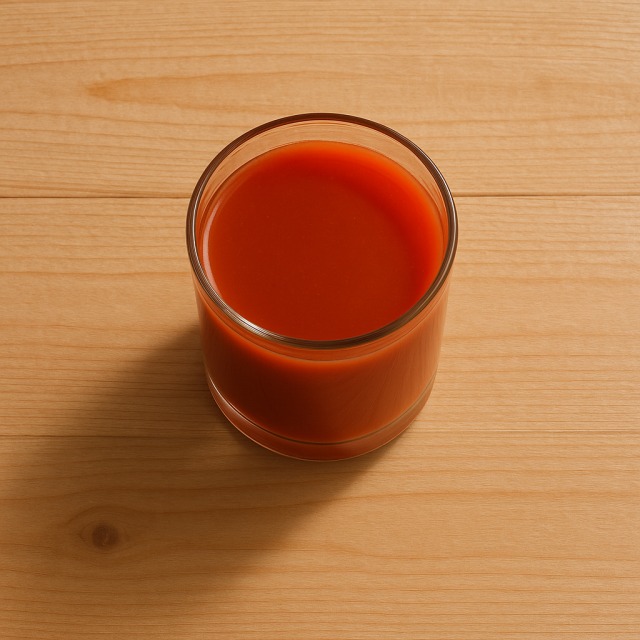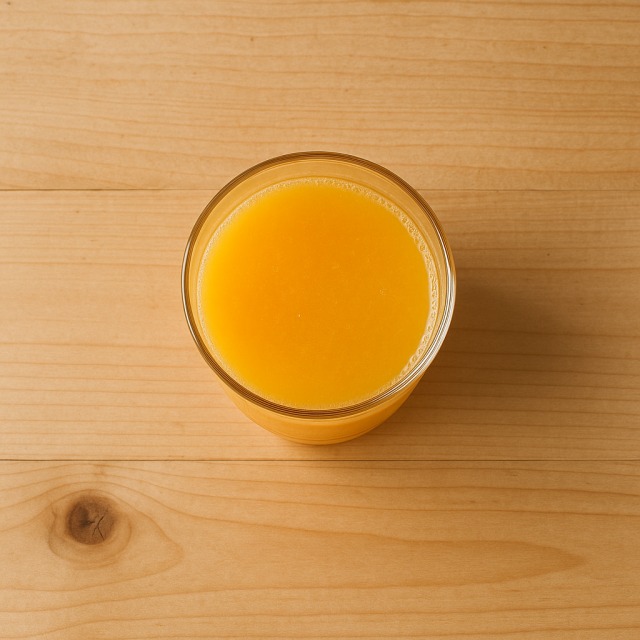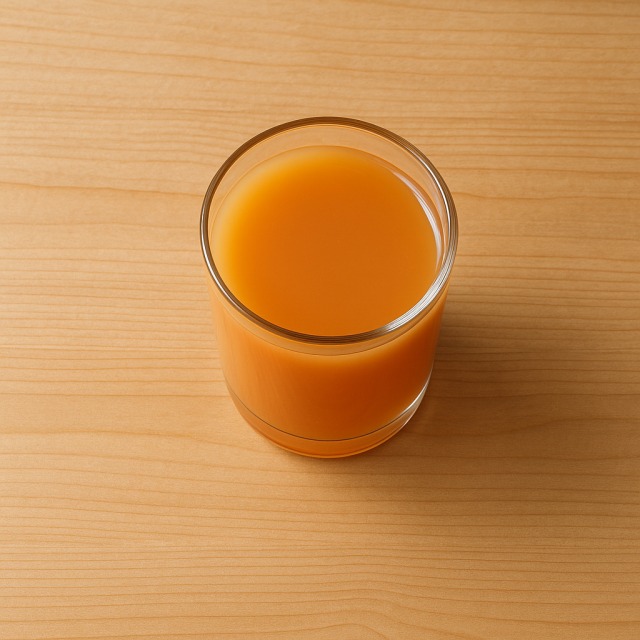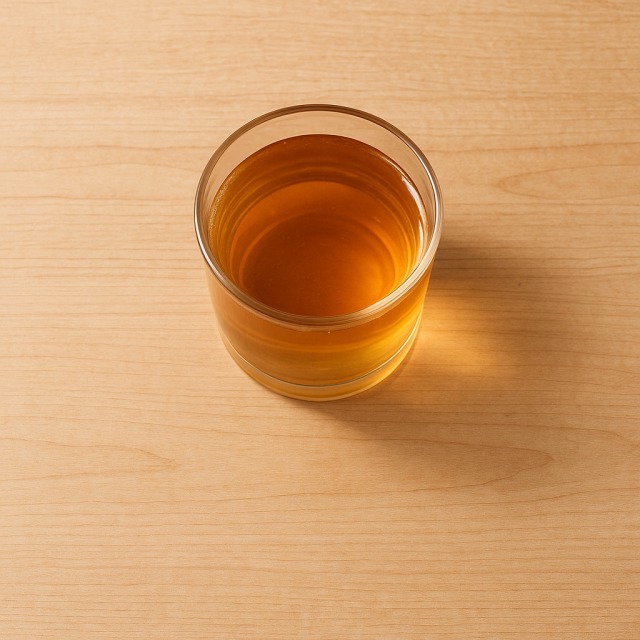Calorie Chart / Beverages / Juice - Grape
How Many Calories Are in Grape juice?
Calculation of the nutritional value & Recommended Dietary Intake of grape juice
For ml and a calorie requirement of kcal
| Calories 155 kcal | Proteins 1.3 g | Lipids 0 g | Carbohydrates 39 g |
| 8% | 2% | 0% | 14% |
Health benefits of grape juice
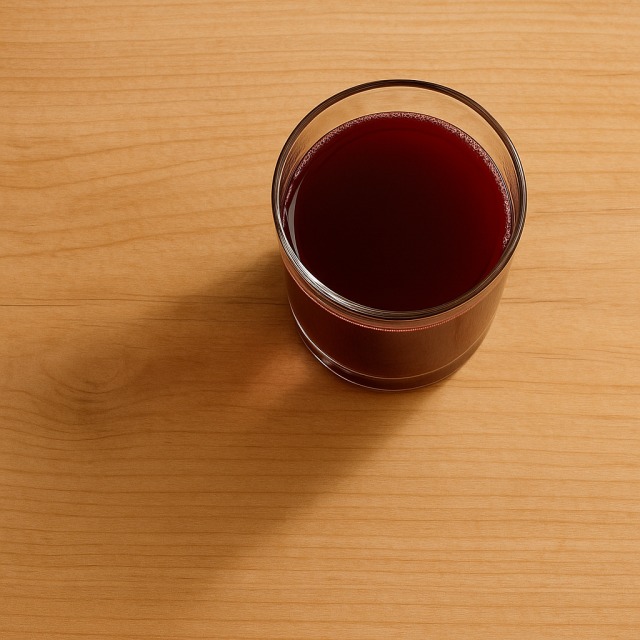
Grape juice - 100ml
Calories 62 kcal
Proteins 0.5 g
Lipids 0 g
Carbohydrates 15.5 g
With only 62 calories per 100 g, grape juice is classified as a moderate-calorie drink that can fit into most energy budgets. The calories come almost exclusively from natural carbohydrates (about 15.5 g of sugars), while proteins and lipids remain negligible. Thanks to its purple pigments, it supplies polyphenols such as resveratrol and anthocyanins, compounds studied for their purported antioxidant action that may support cardiovascular health ("purported" because human data are still limited). Beyond calories, grape juice contributes vitamin C, vitamin K, several B-group vitamins (B1, B2, B6), and minerals like potassium and manganese, helping maintain normal blood pressure and the protection of cells from oxidative stress.
Because the drink contains no alcohol, it offers a family-friendly way to enjoy the aromas of the grape vine. Historically, non-fermented grape must was already appreciated in ancient Rome, where it was reduced to a sweet syrup called sapa. A 150 ml serving provides roughly 90–95 calories, so portion control remains advisable for weight management; yet, those moderate calories are accompanied by hydration, electrolytes, and valuable micronutrients.
Tips for incorporating grape juice into a balanced diet
If you wish to limit calories while retaining flavor, mix one part grape juice with two parts sparkling water and add a squeeze of lemon; you will cut calories in half compared with the straight juice. The acidity of grape juice also makes a sophisticated marinade for chicken breast or duck breast; because the flesh absorbs the aroma, you need very little oil, keeping added calories minimal. At breakfast, blend 100 ml of grape juice with a pot of yogurt and a spoonful of chia seeds: you obtain a creamy smoothie around 180 calories that supplies proteins and omega-3s. Athletes who need extra calories for post-workout recovery can throw in a handful of oat flakes, raising carbohydrates and calories without refined sugar. Finally, reduce grape juice on low heat with a dash of honey to create a glossy glaze for roasted vegetables; brush lightly to add taste, not excessive calories.
Frequently Asked Questions
- How many calories are in grape juice?
- Grape juice provides 62 kcal per 100 g, a moderate amount of calories compared with other sweet beverages.
- Is grape juice high in sugar, and does that raise its calories?
- Yes. About 15.5 g of natural sugars supply the majority of its calories, so moderating portions helps control daily calorie intake.
- Does grape juice have more calories than orange juice?
- On average, grape juice contains slightly more calories; many commercial orange juices hover around 45–50 kcal per 100 g, while grape juice sits at 62 kcal.
- Can athletes use grape juice to refuel without exceeding calories?
- A 200 ml glass delivers roughly 124 calories plus fast-acting carbs and potassium, making it convenient for glycogen replenishment while still allowing precise calorie tracking.
- How do grape juice calories compare with regular soda calories?
- Sodas often reach 40 kcal per 100 g, so grape juice is higher in calories; however, it offers vitamins and antioxidants that soda lacks.
- Which has fewer calories: fresh-pressed or commercial grape juice?
- Fresh-pressed often contains the same natural sugars, so calories are similar, but commercial versions may add sugar or concentrate, pushing calories higher—always read the label.
Similar foods
Information provided by Calorie Menu may contain inaccuracies or errors. It cannot, under any circumstances, substitute medical advice or medication.

